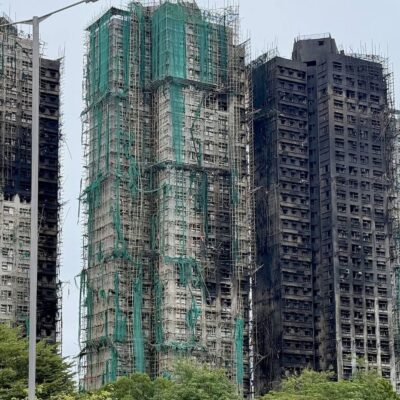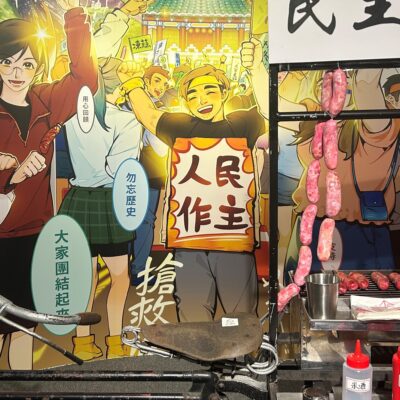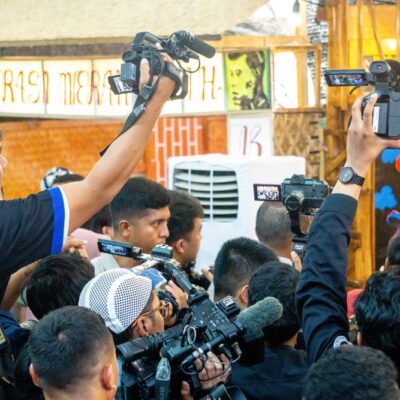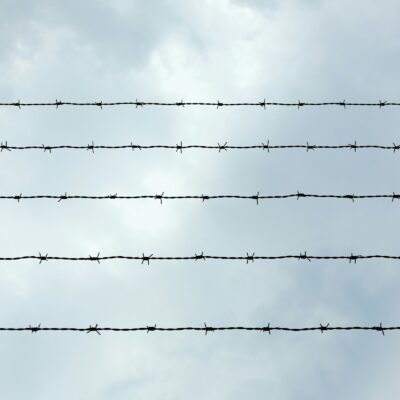Commentary on Cambodia often starts by recalling past wars and violence. But in 2024, a young population, less connected to the patronage networks of the past, have great hopes and expectations for their future.
While Cambodia’s economy has grown significantly over the past two decades, reaching lower-middle income status in 2015, the growing authoritarian nature of the Royal Government of Cambodia under former prime minister Hun Sen is widely documented. Concern abounds about the shrinking space for civil society. It remains to be seen whether his son, new Prime Minister Hun Manet, who came to power in August 2023, will instigate any significant reforms to reinvigorate the rule of law and judicial independence. Many remain sceptical.
Beyond the ‘shrinking space’ argument, we must examine how Cambodia and other governments in Southeast Asia re-shape their relationship with civil society to reduce political opposition, while simultaneously harnessing civil society organisations (CSOs) for governance and service provision. What are the implications for democracy? What strategies do local civil society groups use to manoeuvre within state power structures?
Cambodia’s state-civil society relations are complex and can be characterised by repression, intimidation, and contestation, but also cooperation and partnership, particularly in social service provision and poverty alleviation. This matches the experience in other autocratic regimes that coerce and co-opt, but also seek legitimacy and better government outcomes by cooperating with CSOs when policy and aid agendas align. While the Cambodian government is more welcoming of civil society in development and service delivery spaces, human rights defenders, journalists, and others who require freedom of speech and association to protest against government, are subject to far greater scrutiny and criminal sanction.
During the two decades after 1992, the civil society landscape in Cambodia was spurred by billions of dollars of international aid following the UN’s intervention in 1992-1993 to oversee elections and the establishment of democratically elected government. As the 2000s progressed and international aid waned, donors became more frustrated with the lack of governance reforms to improve aid delivery and reduce corruption. Trends to ‘localise’ staff, changing international donor agendas, alongside a government that was less tolerant of dissenting civil society voices, saw significant reduction in the space for civil society to operate. China’s growing role as economic investor and aid donor has changed the landscape again, reducing the reliance on western aid.
Cambodia has one of the youngest populations in the world – two-thirds are under 30. The pace and nature of policy change, however, has not been able to address the expectations of people both in rural and urban areas. Youth marginalisation and frustration with government services were partly blamed for shock losses for the ruling Cambodian People’s Party (CPP) in the 2013 national election. The opposition Cambodian National Rescue Party (CNRP) party made significant electoral gains. Citizen dissatisfaction was high. Poor quality service delivery, land eviction and dispossession, failure to tackle corruption, intimidation of environmental activists, and human rights abuses were among the pressing concerns. The government then embarked on policy reforms to improve its performance and legitimacy.
The CPP became more sceptical, if not paranoid, about whether some CSOs and NGOs were agent provocateurs. Following large-scale post-election protests, the government took openly aggressive measures to restrict forms of both individual and collective expression. Topping the list was a law to govern both international and domestic civil society organisations.
Despite opposition from international and domestic stakeholders, in 2015 the government passed the Law on Associations and Non-Governmental Organisations (LANGO). It gives significant regulatory and administrative powers to the Ministry of Interior and Ministry of Finance to monitor and uphold registration guidelines for civil society organisations, codifying criminal sanctions for breaches. The government says the law was necessary to coordinate civil society across different sectoral and geographical areas. Critics note, however, that the ambiguous language of LANGO provides authorities and the judiciary wide scope of interpretation. The lack of procedural safeguards place foreign NGOs, particularly international human rights organisations, at risk of administrative and judicial harassment.
Today, LANGO remains critical to the government’s ability to manage the political space for civil society. The government continues to add more legislative tools, including the 2016 Telecommunications Law, which legalises powers of surveillance and monitoring of speech via the internet, phone and social media.
In the leadup to the 2018 election, a crackdown on democratic institutions and freedoms resulted in Cambodia being described as “sliding back into authoritarianism”. This included the closure of The Cambodian Daily, often critical of the government, and the sale of The Phnom Penh Post to a Malaysian investor linked to Hun Sen. The dissolution of the main opposition CNRP party by the Supreme Court in 2017 raised further fears of “democratic backsliding”. Meanwhile the assassination of political opponents and activists, and systemic use of laws to silence political opponents through the application of LANGO, defamation, financial fraud, and other criminal offences are frequently cited markers of Cambodia’s growing authoritarianism.
The CPP recognises that social media and the internet can enable challenges to its legitimacy. Consequently, online activities are under greater scrutiny and surveillance. A planned government-run National Internet Gateway, effectively a firewall, while put on hold in 2022, signals future policy to control critical online content. In 2023, Voice of Democracy’s broadcast licence was revoked. In the 2023, the CPP won a landslide in the national election, taking 120 out of 125 parliamentary seats, in a contest devoid of meaningful political opposition.
Still, the government continues to partner with international organisations and NGOs. The World Bank, UNICEF, International Labour Organisation, and various Cambodian NGOs have worked productively to combat complex policy problems, such as health system reform, poverty alleviation, child labour and unregulated ‘fake’ orphanages.
Cambodia is not alone in Southeast Asia in grappling with the paradox of resisting the political challenge from CSOs while embracing their indispensable contribution to development and welfare. But it is a model case, and a test, for how CSOs and donors can better support democratic norms and navigate the interplay between state bureaucracies and diverse civil society ideologies.
Dr Melissa Curley is senior lecturer in international relations at the University of Queensland. She is Deputy Director of the Graduate Centre in Governance and International Affairs.
This article, brought to you by the University of Melbourne, is part of a Asia Institute and Asialink series on democracy in Southeast Asia. The series coincides with the upcoming Southeast Asia Oration at the University, to be delivered on 4 July by Mr Pita Limjaroenrat MP, a Member of the Thai House of Representatives and Former Leader of the Move Forward Party.
Image: Demonstrators in the city centre demand the reinstatement of Chhim Sithar as President of the Labor Rights Union, Phnom Penh, January 9, 2020. Credit: Shutterstock/Stock Photos 2000.




